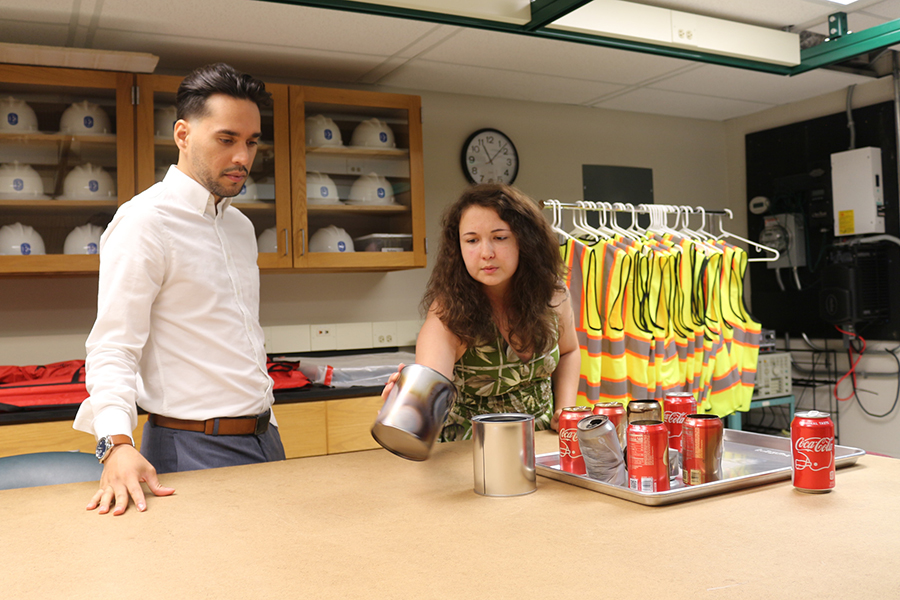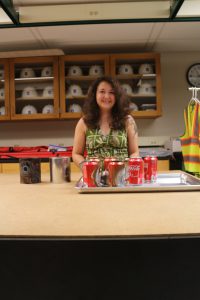Civil Engineering major Ruth Jacob ’23 has been performing small-scale experiments on aluminum cans this summer in Esbenshade, attempting to prove that this form of testing can be a viable solution in better understanding the thermal buckling of steel tanks during disasters.
Title of Research
Small-Scale Experiment on Steel Tanks Subjected to Fire
Student Researcher
Ruth Jacob ’23 – Civil Engineering
Faculty Mentor
Jean Batista Abreau, Assistant Professor of Engineering & Physics
Ruth: I am analyzing current information regarding the thermal buckling of steel tanks (I.e. during tank farm disasters) and making an attempt to prove that small-scale testing could be a viable option to better understand their behavior during these catastrophes (as opposed to computational/computer models).
Professor Batista Abreau: Engineers learn a lot from failure. This SCARP project specifically focuses on the failure of oil storage tanks due to fire. Hundreds of fires at outside storage tank facilities occur in the US every year resulting in injuries and fatalities, millions of dollars in losses, and environmental pollution. To improve the fire design of such tanks, it is essential to understand how they behave and collapse when subjected to elevated temperatures. However, it is unfeasible to experiment with enormous tanks filled with oil. Therefore, in this project, our main goal is to assess the feasibility of small-scale testing to better understand large-scale systems. We aim to generate valuable information to create, evaluate, and validate computational models, and subsequently help to improve the fire design of oil tanks.
Why did you choose this topic?
Ruth: It seemed like an interesting topic and I thought it was a good opportunity to learn more from my mentor, who has been researching this topic for quite some time.
What is the most interesting aspect of this research?
Ruth: The most interesting part of this research is the small-scale testing aspect. Getting to do something hands-on has been really rewarding and fascinating.
How has Professor Jean Batista Abreau helped you throughout this experience?
Ruth: Working with my faculty mentor has definitely been an unforgettable experience. He’s offered lots of valuable feedback that has helped me hone in on my writing skills and how I can improve my research.
Hear from the Faculty Mentor – Jean Batista Abreau
“Through SCARP, in just a few months, students actively learn about a subject that’s typically beyond the scope of traditional course content by working towards solving an authentic problem. Since the projects are selected by the students, their motivation and genuine curiosity are evident. It’s immensely rewarding to engage with the students and watch them grow their sense of ownership while developing their technical and soft skills. SCARP empowers students by providing unique opportunities to lead a project, gain expertise, and grow professionally.”


